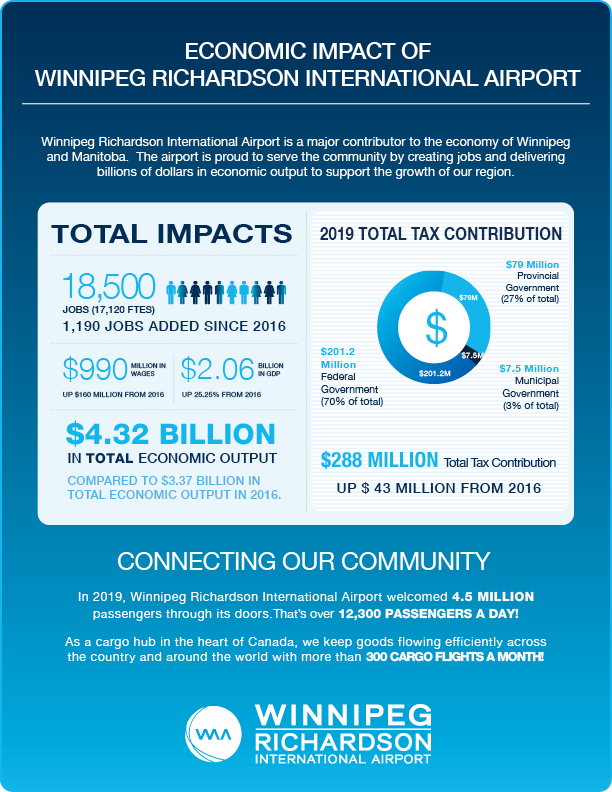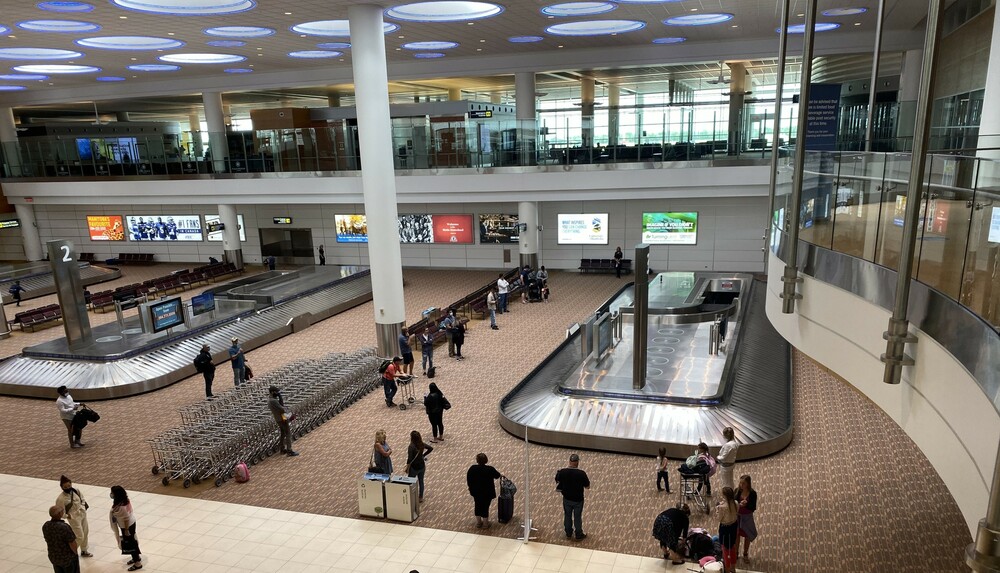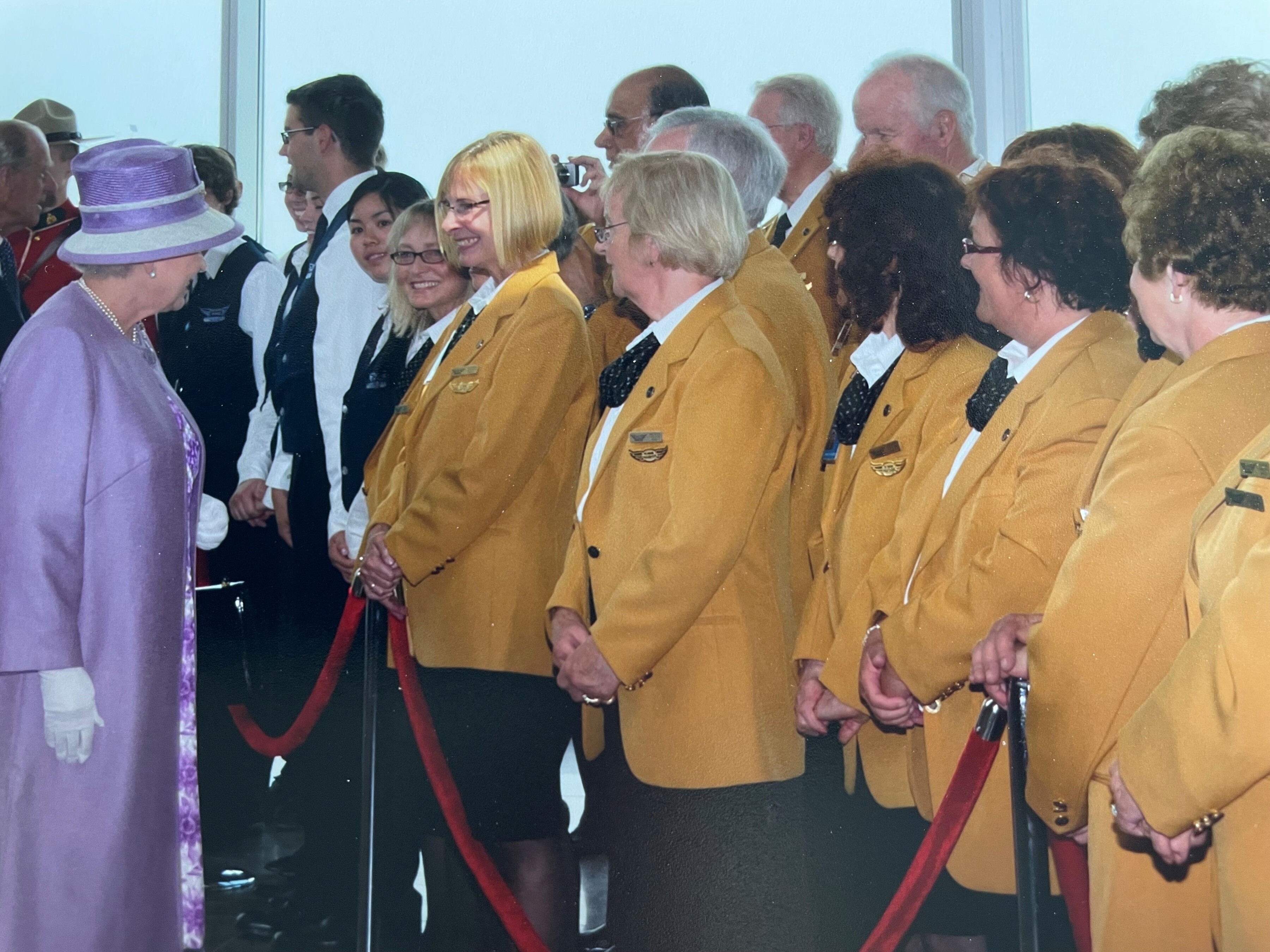Winnipeg Richardson International Airport continues to drive economic growth and create jobs in the city and province according to a new report by InterVISTAS Consulting Inc. Roughly 18,500 jobs were supported by the operation of YWG last year, which is up from 17,310 jobs since 2016. Employment was gained in a variety of industries such as air services, facilities, hospitality, manufacturing and ground transportation. The wages associated with all of these jobs totaled $990 million.
The number of careers directly linked to the airport increased by 5 per cent since 2016 to 10,830. Of them, 96 per cent are permanent positions while 83 per cent are full-time jobs. The average annual wage for these positions was $57,400 compared to the provincial average of $48,700.
The significant spike in new jobs helped generate an additional $1 billion in economic impact for the community. YWG was responsible for $4.32 billion in economic output last year - up from $3.37 billion in 2016. The airport also contributed $2.06 billion in total gross domestic product to the economy.
"These numbers clearly indicate the airport and related businesses are a source of stable, year-round employment," said Barry Rempel, President and CEO of Winnipeg Airports Authority. "We're proud of the airport's role in supporting good paying jobs for our neighbours, helping drive Manitoba's economy and making our province stronger."
In 2019, YWG welcomed 4.5 million passengers through its doors, equaling roughly 12,300 per day. As a cargo hub situated in the heart of Canada, the airport also kept goods flowing efficiently by handling more than 300 cargo flights per month.
"Winnipeg Richardson International Airport is a non-stop hub of activity," said Rempel. "The 24-7 operation of the airport is crucial in connecting our community with the rest of the world. This ongoing economic activity generates significant tax revenue for all three levels of government."
The taxes paid in 2019 by WAA, its airport partners and their employees were roughly $288 million. The federal government received the majority of the tax revenue at $201 million. Roughly $79.5 million in taxes were paid to the province while local municipal governments received $7.5 million. To compare, the airport's total tax contribution in 2016 was $245 million.

WAA's commitment to ensure the airport continues to grow sustainably and deliver the services the community needs to succeed was evident in 2019. An extensive $24-million rehabilitation of Runway 13/31 saw additional construction crews, technicians and engineers work out of YWG over the span of the five-month long project. Work progressed on the new $27-million Ground Service Equipment Building located near the Air Terminal Building. Planning is also underway for a new $62-million Air Cargo Logistics Facility, funded in part by a $30-million investment from the federal government under the National Trade Corridors Fund.
The entire economic impact study is available to read at https://eisywg.ireport.royalhaskoningdhv.com/.



